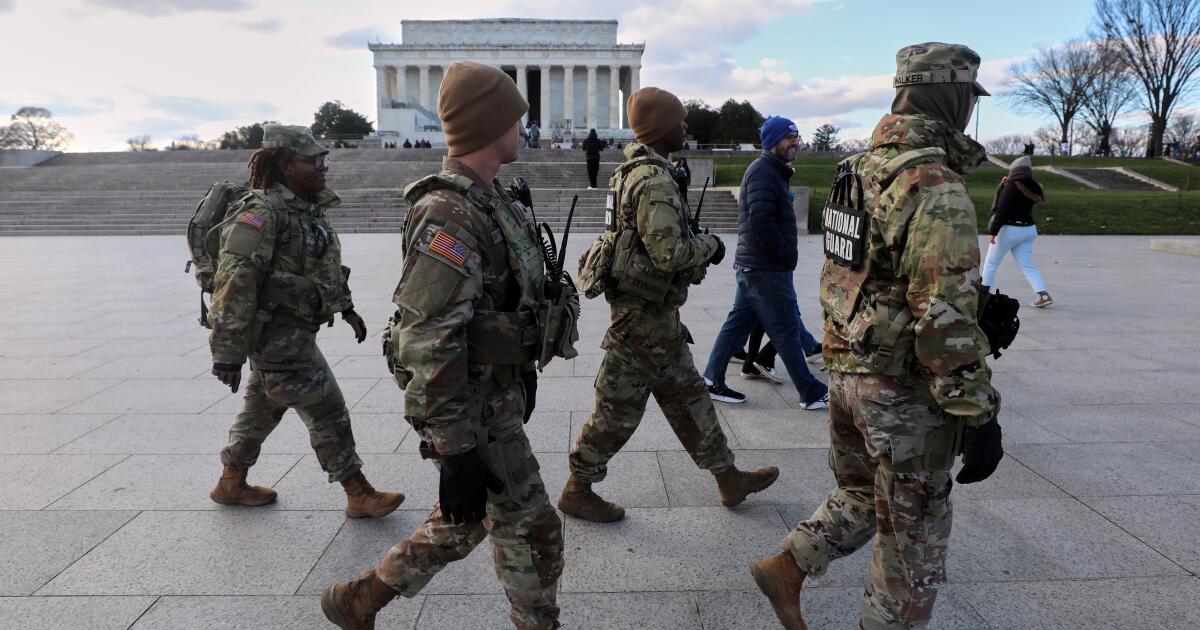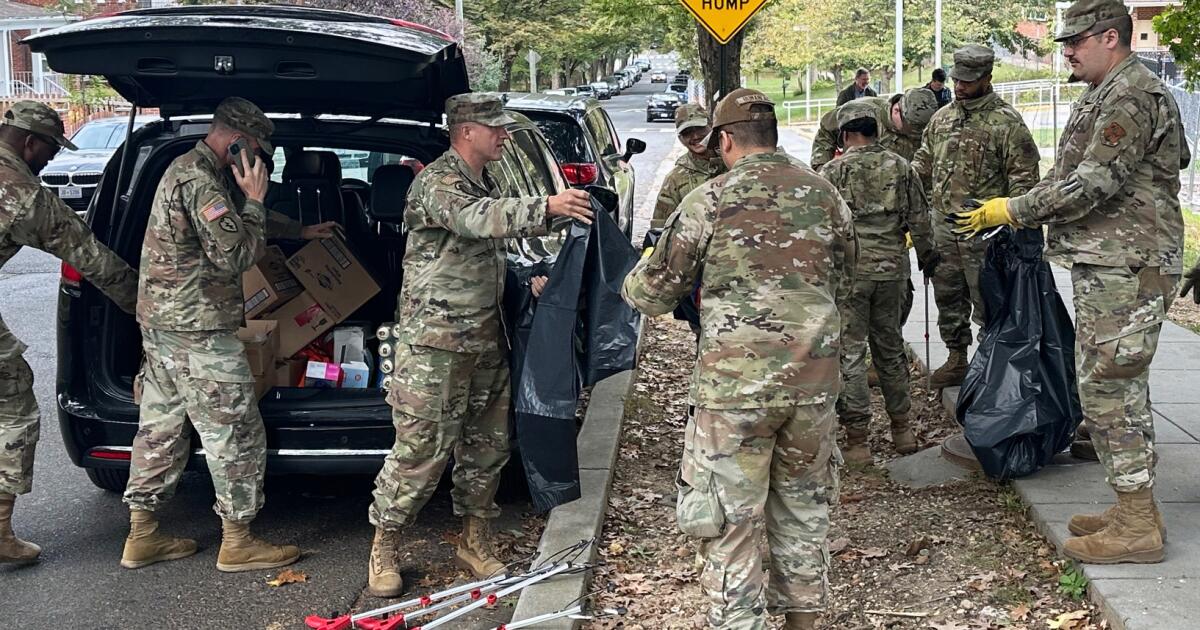U.S. halts all asylum decisions after shooting of National Guard members
WASHINGTON — The Trump administration has halted all asylum decisions and paused issuing visas for people traveling on Afghan passports, days after a shooting in the nation’s capital that left one National Guard member dead and another in critical condition.
Investigators continued Saturday to seek a motive in the shooting, in which the suspect, Rahmanullah Lakanwal, faces charges including first-degree murder.
Lakanwal is a 29-year-old Afghan national who worked with the CIA during the Afghanistan war. He applied for asylum during the Biden administration, which was granted this year under President Trump, according to #AfghanEvac, a group that assists with resettlement of Afghans who helped U.S. forces in their country.
The Trump administration has seized on the shooting Wednesday several blocks from the White House to intensify efforts to rein in legal immigration, promising to pause entry from some poor countries and review Afghans and other legal migrants already in the country. That is in addition to other measures, some of which were previously set in motion.
Army Spc. Sarah Beckstrom, 20, died after Wednesday’s shooting, and Air Force Staff Sgt. Andrew Wolfe, 24, remains hospitalized in critical condition. They were deployed with the West Virginia National Guard as part of Trump’s mission in Washington, D.C., which he says aims to combat crime. The president also has deployed or tried to deploy National Guard members to other Democratic-run cities to assist with his mass deportation efforts but has faced court challenges.
U.S. Atty. Jeanine Pirro’s office said the charges against Lakanwal also include two counts of assault with intent to kill while armed. In an interview on Fox News, she said there were “many charges to come.”
Asylum decisions halted
Trump called the shooting a “terrorist attack” and criticized the Biden administration for enabling entry by Afghans who worked with U.S. forces.
The director of U.S. Citizenship and Immigration Services, Joseph Edlow, said Friday in a post on the social platform X that asylum decisions would be paused “until we can ensure that every alien is vetted and screened to the maximum degree possible.”
Experts say the U.S. has rigorous vetting systems for asylum seekers. Asylum claims made from inside the country through USCIS have long faced backlogs. Critics say the slowdown has been exacerbated during the Trump administration.
Also Friday, Secretary of State Marco Rubio said his department was pausing “visa issuance for ALL individuals traveling on Afghan passports.”
Shawn VanDiver, president of San Diego-based #AfghanEvac, which has coordinated with the U.S. government on its Afghan resettlement efforts, said in response: “They are using a single violent individual as cover for a policy they have long planned, turning their own intelligence failures into an excuse to punish an entire community and the veterans who served alongside them.”
The suspect
Lakanwal lived in Bellingham, Wash., about 80 miles north of Seattle, with his wife and five children, former landlord Kristina Widman said.
Neighbor Mohammad Sherzad said Lakanwal was polite and quiet and spoke little English.
Sherzad said he attended the same mosque as Lakanwal and heard from other members that he was struggling to find work. He said Lakanwal “disappeared” about two weeks ago.
Lakanwal worked briefly this summer as an independent contractor for Amazon Flex, which lets people use their own cars to deliver packages, according to a company spokesperson.
Investigators are executing warrants in Washington state and other parts of the country.
Lakanwal entered the U.S. in 2021 through Operation Allies Welcome, a Biden administration program that resettled Afghans after the U.S. withdrawal, officials said. Lakanwal applied for asylum during that administration, but his asylum was approved this year under the Trump administration, #AfghanEvac said in a statement.
Lakanwal served in a CIA-backed Afghan army unit, known as one of the specialized Zero Units, in the southern province of Kandahar, according to a resident of the eastern province of Khost who identified himself as Lakanwal’s cousin and spoke on condition of anonymity for fear of reprisals.
The man said Lakanwal started out working for the unit as a security guard in 2012 and was later promoted to a team leader and a GPS specialist.
Binkley and Finley write for the Associated Press. AP journalists Sarah Brumfield, Siddiqullah Alizai, Elena Becatoros, Randy Herschaft, Cedar Attanasio and Hallie Golden contributed to this report.

